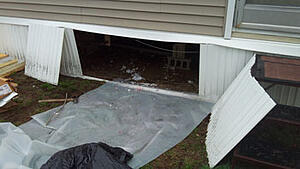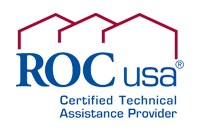
Hints for first-time homebuyers
By Ron Thompson
Six tips for first-time homebuyers.
A home buyerrecently suggested that first-time home buyers would benefit from a handout that covers the basics of the loan process. We do provide a Consumer Financial Protection Bureau booklet called Shopping for your home loan to Welcome Home Loan borrowers.

A good home inspection can alert you to problems, and possibly lower the sales price. |
I love working with first-time buyers, who are always excited and full of questions. I've distilled the most common topics we discuss into a top six.
Realtors
Almost every home buyer will work with a Realtor at some point. While it might seem easier to simply call the Realtor who lists the home you are interested in, be aware that he or she represents the seller and the seller's best interests. Instead, you can choose to work with a "buyer's broker," a different Realtor who will have your best interests in mind.
Your broker may tell you how long the home has been on the market; whether it is, in their opinion, overpriced; whether the seller seems 'motivated'; and how the seller might help reduce your closing costs. Your broker can also help you negotiate price. In most cases you won't have to pay for this service, as your Realtor will split his or her commission with the listing Realtor.
Seller credits
A seller credit is when you negotiate a higher purchase price with the home seller, then the seller credits that increased amount toward your closing costs. It is often a good idea, especially if you need to save cash to purchase appliances or furniture for your new home. Requesting a seller credit is easy and should be done when you put an offer on the home. Having this agreement up-front with the seller is important, because your lender can't increase your loan amount above the purchase price to cover your down payment and costs.
Home inspections and appraisals
Yes, they are two different things. A home inspector is expert at identifying structural and other problems with the home you are buying. An appraiser determines the home's value by comparing it to other recently sold homes in the area. Most lenders do not require a home inspection, but I highly recommend one unless the home you are buying is brand-new. If the inspector discovers a major problem, you may be able to negotiate a lower price or additional closing credit.
Title insurance
Title insurance and home insurance are two different things. Home insurance covers you in the event your home or its contents are damaged. Title insurance ensures that your home has a clear and marketable title on the day you purchase it.
 A clean title is crucial. Without it, a former owner or their descendants could claim an ownership interest in your home. Remember, also, that lender's title insurance (purchased by the lender at your expense) protects the lender only. Owner's title insurance is optional and an added expense, but I highly recommend you purchase it.
A clean title is crucial. Without it, a former owner or their descendants could claim an ownership interest in your home. Remember, also, that lender's title insurance (purchased by the lender at your expense) protects the lender only. Owner's title insurance is optional and an added expense, but I highly recommend you purchase it.
Escrow of taxes and home insurance
Many lenders "escrow" your taxes and home insurance. That means the lender pays your taxes and home insurance when they come due, and you pay 1/12 of your annual taxes and 1/12 of your annual home insurance premium as part of each mortgage payment you make.
These monies are placed into an escrow account, and the lender draws from this account when paying your taxes and home insurance premiums.
Even when you escrow your taxes, your town/city will still send you a tax bill twice a year. Don't pay it—your lender will also get a copy of the bill and will pay it for you.
Another important thing to remember is that towns adjust taxes and tax rates on homes all the time. So your lender will re-analyze your escrow each year to determine if they are collecting too much or too little for your escrow account. If they determine they're collecting too little, you will have the option of either making a lump sum payment to the lender to cover the amount of the increase, or increasing your monthly mortgage payment.
Likewise, if the town lowers both the value of your home and your taxes, your lender will decrease the portion of your mortgage payment that goes toward escrow.
Closing date
Your Realtor will place a closing date on the contract you sign to purchase a home. You may think this date is set in stone because you see it on the contract, but hold off, for now, on telling your landlord you're moving out or scheduling a moving truck. Lenders can never guarantee a closing date until they have received all the conditions they need from you to close the loan. These conditions are listed on the commitment letter you receive from the lender. Once all conditions are received and signed off on, closings are scheduled by the title company in the order they are received.
The Consumer Financial Protection Bureau has a great new Web site , with helpful checklists and explanations for first-time homebuyers. It's worth spending some time with.
A home is often the largest purchase we'll make in our lifetimes. You'll probably feel a mixture of excitement and anxiety throughout the process. These feelings are totally normal. You can also be sure that, despite what you may have heard recently, owning a home that you keep well-maintained will be one of the best investment choices you can make.
Happy house hunting!
Ron Thompson is a Welcome Home Loans Mortgage Loan Originator at the Community Loan Fund.
NMLS #225348. Licensed by the New Hampshire Banking Department.















